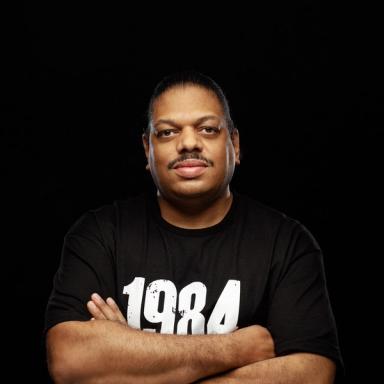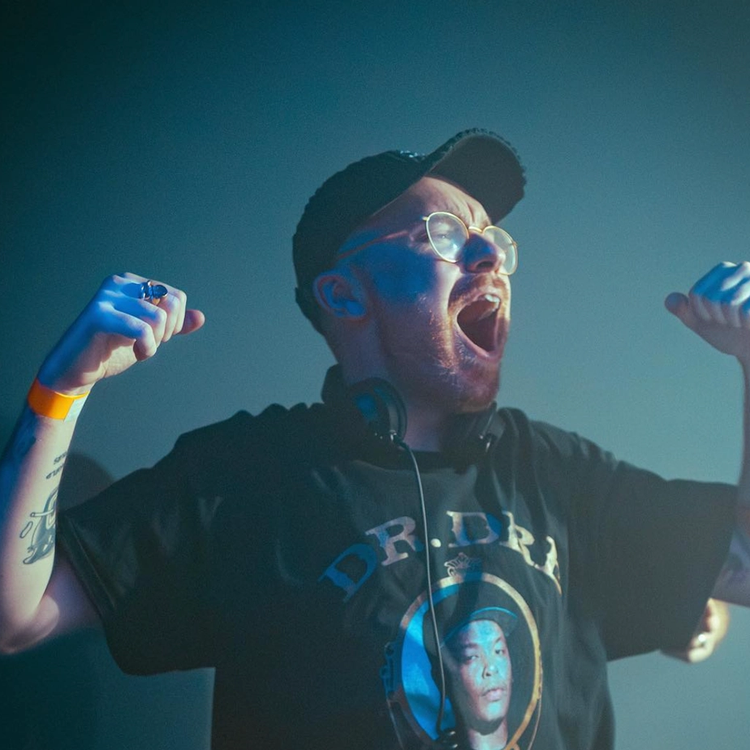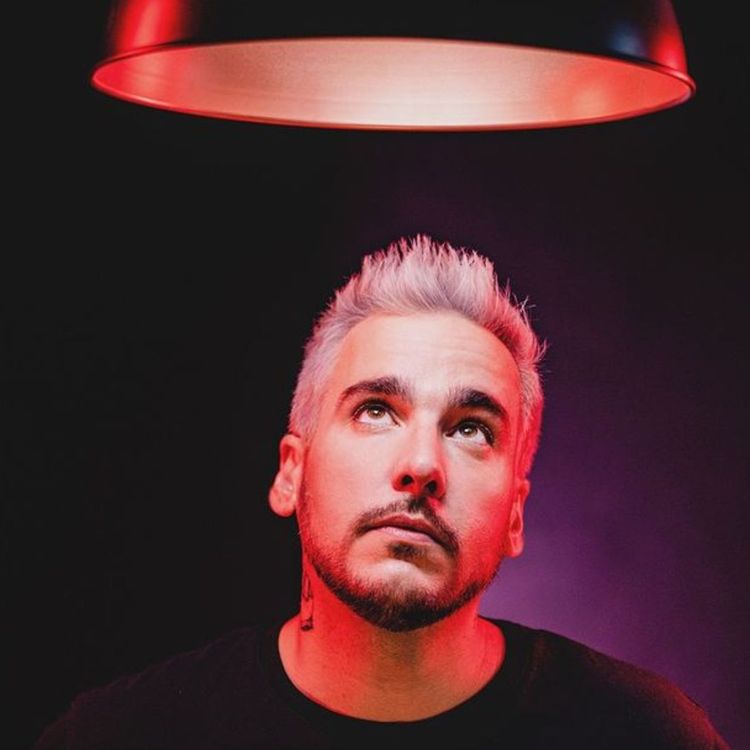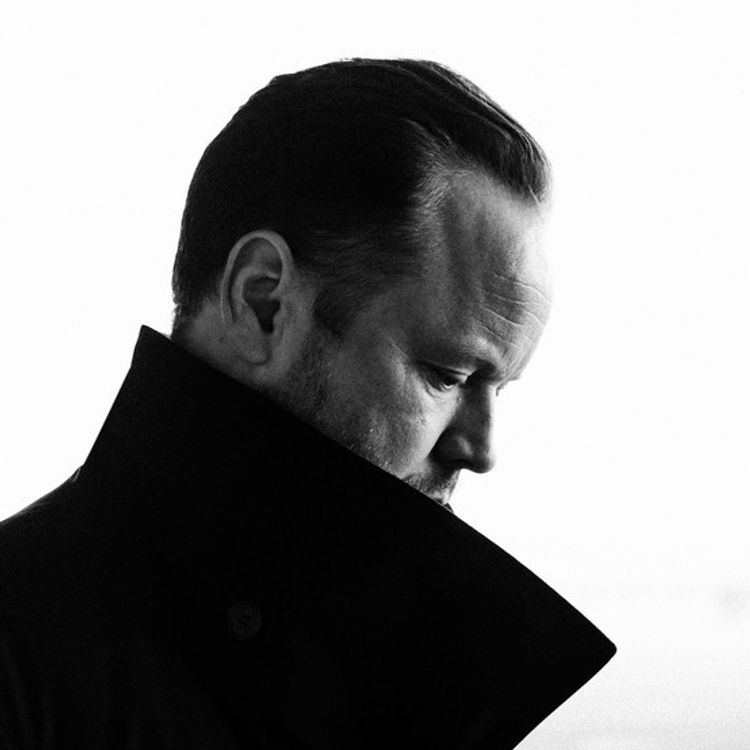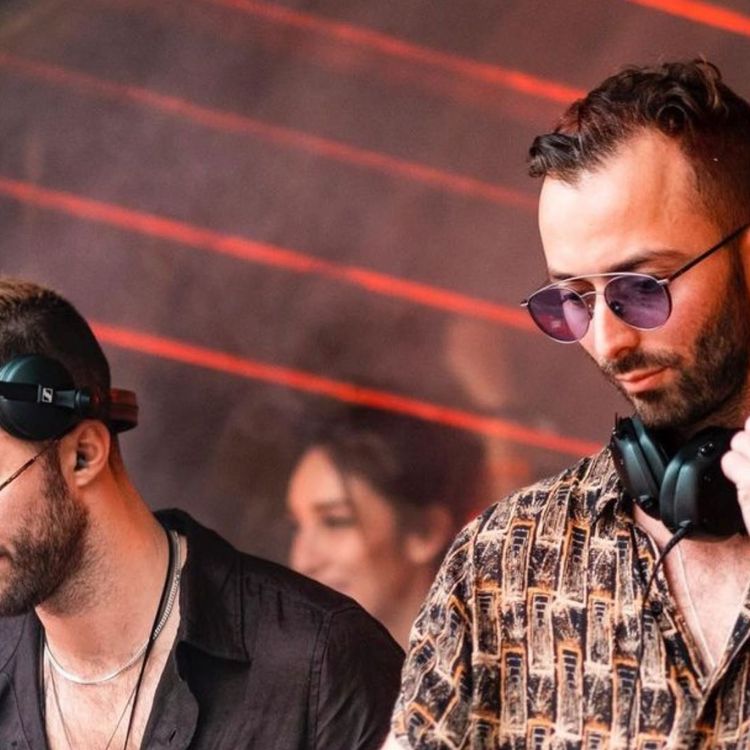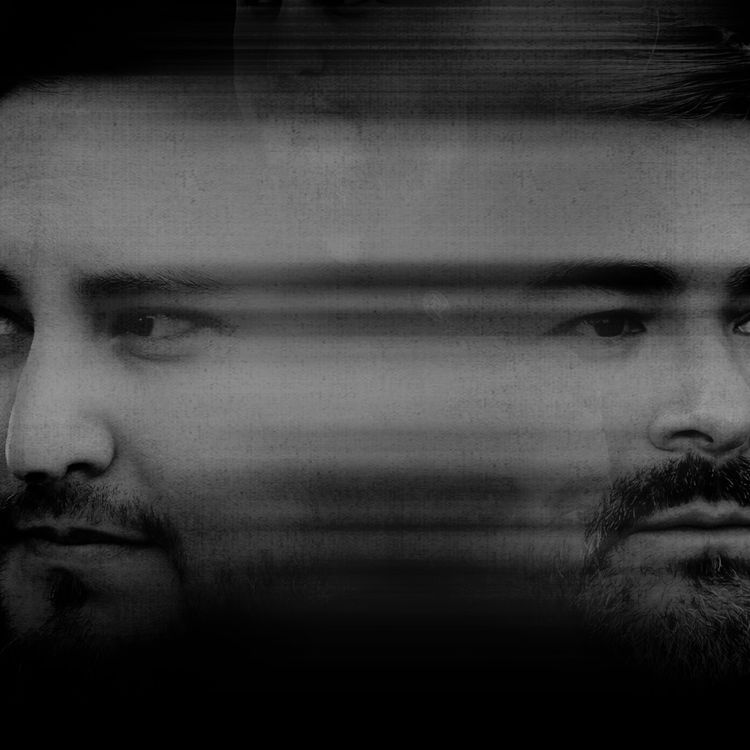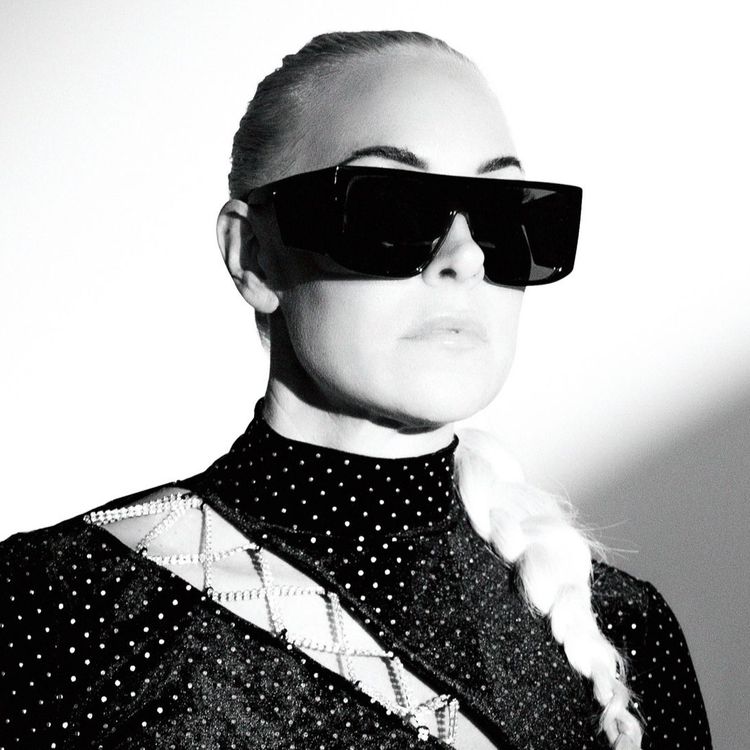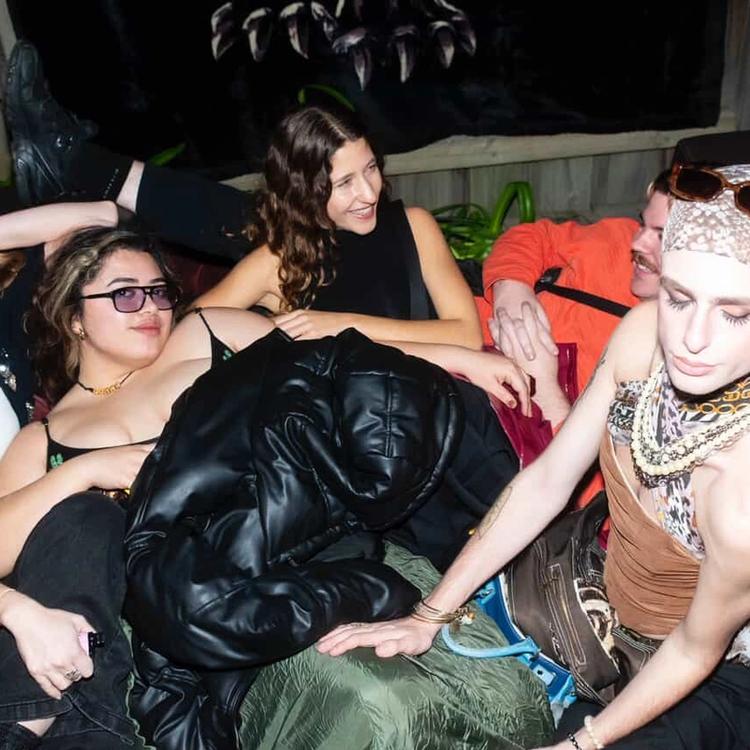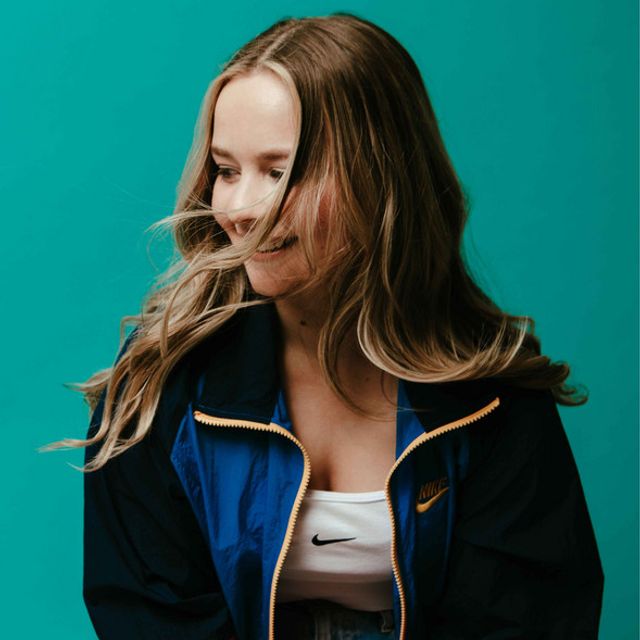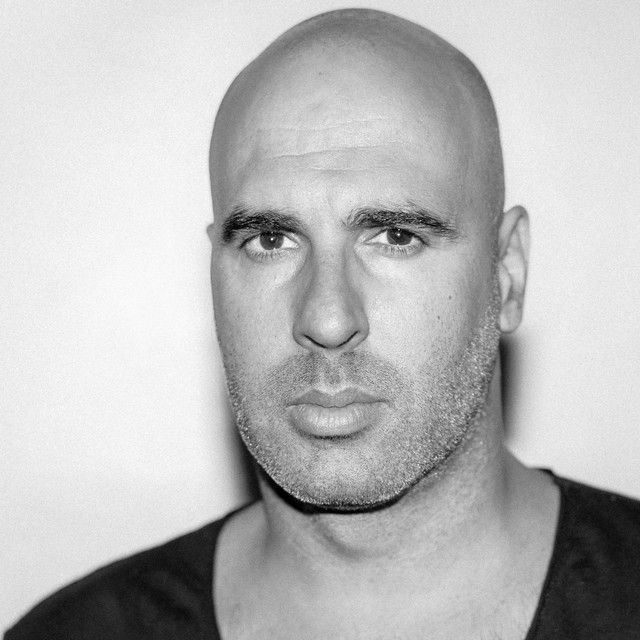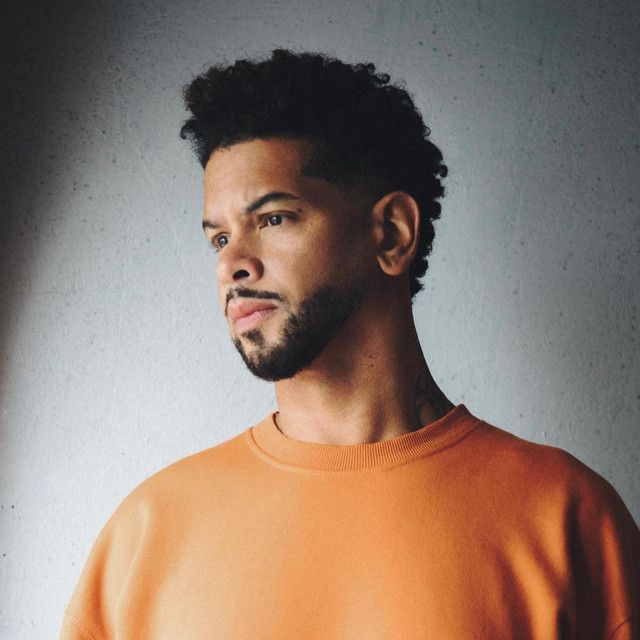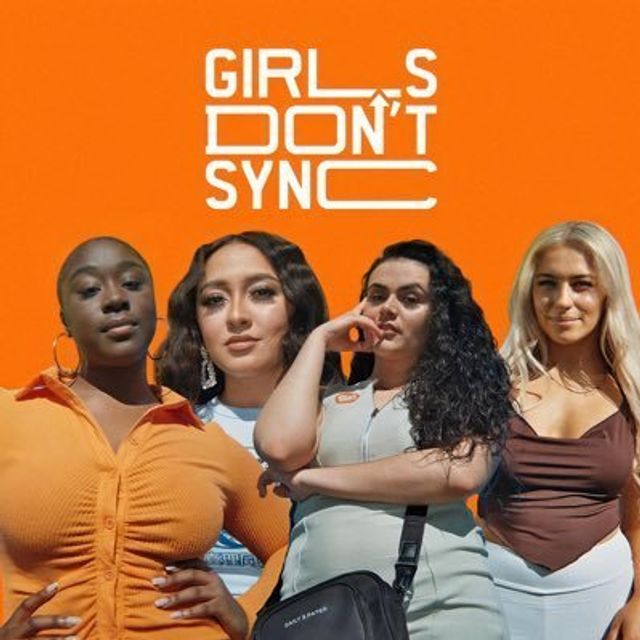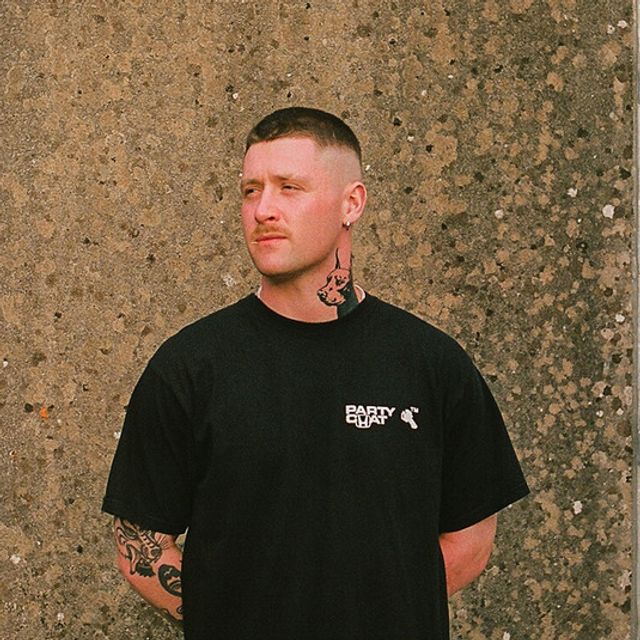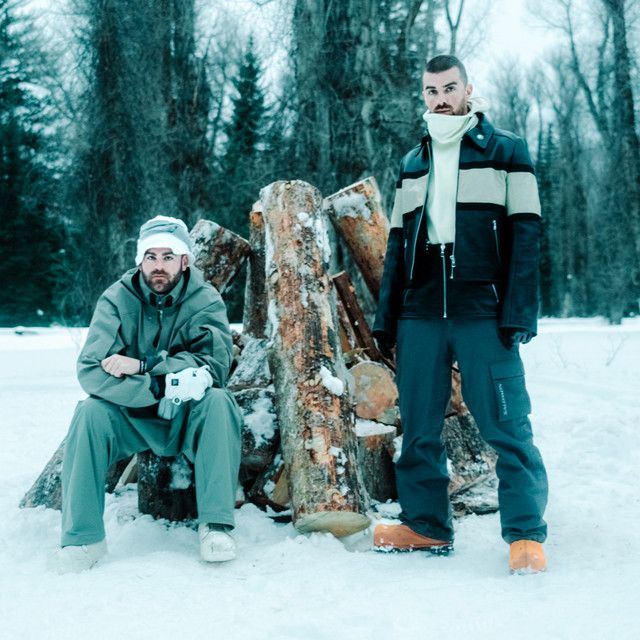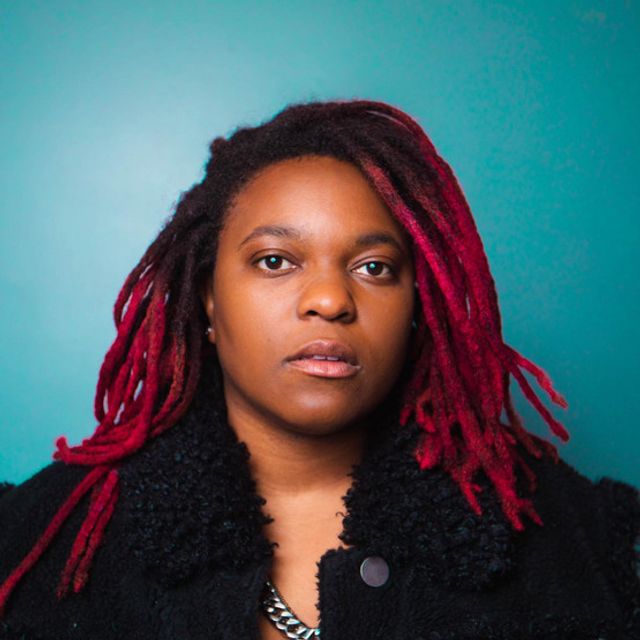Artist Spotlight
Among Kerri Chandler's many contributions to dance music is his irevokable role as one of the progenitors of the classic deep house sound. And even though his thirty year career is filled with culture-defining moments, he still sees himself as a student. He is excited about the next generation of house producers and remains a gear nerd, adopting new synths and techniques regularly. For the New Jersey-raised artist, house is still everything.
"[House] is my entire life. It's my thought process. I feel blessed I get to do what I love," he recently told Gray Area via video chat from a London hotel. But even though he has many classics in the cannon, he's not nostalgic for the past. "I'm always staying curious. I don't have a favorite time period," he states.
He's also incredibly generous with his time—spending an hour-and-a-half diving deep into the stories behind some of his biggest tracks—and humble about his illustrious career. "I've never tried to be the best, just the best me," he asserts.
His most recent album, 2022's expansive 24-track Spaces and Places, pays tribute to the magic his favorite venues cast on the club experience. He wrote tracks honoring Printworks, Ministry of Sound, Rex Club, Output, Watergate, DC-10, and many others, each informed by the club's unique spirit.
"I think each club has memories. And a lot of people go there to be free and set things loose and have a good time. It's their other home, in a way… I like the spontaneous feeling of each club, each one has something different because of the culture and the people that come there."
For Chandler, all of the venues he featured spark a certain nostalgia for the infamous clubs of yesteryear. Throughout his career he's been intimately familiar with these historic spaces, especially those in New Jersey and New York, including Paradise Garage right before it closed. He explains that the Ministry of Sound system is so good because it was modeled after the Garage, adding that he had his studio set up like MoS at one point. To honor the sound of these spaces, he recorded each track inside the club, finding different ways to capture thier essence and "get the tonality of the clubs."
Some, including Output (now Superior Ingredients) and very recently, Printworks, have shuttered since he made the tracks. "Things open and things close with each generation. But the sad thing for me is watching things turning into condominiums or some kind of useless business. It's like Printworks, which is one of my favorite places I've ever been, even just walking in there."
In Printworks' green room there was an "ugly yellow piano" that all the DJs signed. After scrawlling "Kerri was here" on the inside of the piano, Chandler recorded a sparkling riff on the infamous instrument, ensuring it would never be forgotten. He then went downstairs to finish "Never Thought [Printworks]" and tailor it especially for the beloved space—"even the way it echoes off the walls and the speakers to fit the club exactly."
His most recent release, the Lost & Found EP, Vol. 2, is a collection of previously unreleased demos from over the years. Some were unearthed by friends, and all were released as-is. "I just put them out as demos, so people can hear the process," he reveals.
It opens with a somewhat surprising—incredibly banging—techno track, "Fluff Rehab." Recorded around 12 years ago, it's a result of The Martinez Brothers and Dennis Ferrer saying Chandler needed to do something "tougher," he explains. "I was always joking about it at the time when I did 'Back to the Raw' [in 2004]. I was like, 'That's enough of this fluffy, weak sh--, let's get back to the raw.'"
The opening track to Vol. 1, released in 2022, "What Will We Do," features humorous vocals from his jazz singer grandfather, who he previously worked with on 1993's "She's Crazy." They made it 33 years ago, and was the record that inspired Chandler to start the project, after his friend Will sent it to him.
If a track sits on his hard drive, it's unlikely he's going to go back and keep working on it. But recently, he's unearthed some of the uncut gems from long forgotten hard drives to share with fans. A few years ago, he released a bunch of demos in a free download link. ("Fluff Rehab" was one of the fan favorites.) He sees it as a way to say thank you to his fans and is planning on doing it again soon.
How does he know when he's done with a track? "When you start adding things to a track and it feels like it's taking away from it," he says.
"When it starts taking away from the groove of the track, that's when I know I've gone too far and I need to strip it back some more. Even with vocals, I learned that early on; too many vocals are too many vocals. We don't need all of that. When you make dance music, you have to make people dance. I'm not making songs for the radio, I'm making it for clubs, for people that really want to release… or to make you think. That's what I think deep house actually is, it makes you think. Not just in tonal sounds, this is music to make you feel something, you can relate to it, it makes you think and you can dance to it at the same time."

Joe Finch
Behind every Kerri Chandler song is a feeling, a mood, a story. "I only go [in the studio] when I feel like I have something to say. If there's something on my mind, I'll wake up early in the morning and run into the studio," he reveals. "Every single song I've made has a reason. I have to sit and live with something, and then it becomes a song. I can't just go, 'I'm going to make a track today and it's going to be like this,' even if it's an instrumental. Something has to influence me or make me think about what I'm doing, otherwise it feels forced and I don't finish it."
2015's funky, freaky "Turn Off The Lights (Who's Afraid Of The Dark)" was inspired by his kids and features a loop of his son banging on the pipes. After they moved into a new house with a big basement, his son was scaring his daughter by banging on the pipes in the dark, spooky space as they played hide and seek. Right after Chandler's daughter—also named Kerri—was born, he had to board a plane for a gig which understandably broke his heart. He took the rest of the year off so he could be there for all her big firsts, and "2 My Daughter Kerri," celebrates a day they shared together when she was three.
"I shared the day that we would normally have and how much I loved her in case anything ever happened. I wanted to make sure that she has a musical letter that I wrote to her. But this has always been my life. It's always been this way," he says.
The deep and personal meaning in his music goes all the way back to his very first track in 1991, "Get it Off." It was sparked by a harrowing personal tragedy: the love of his life, Tracey, was raped and murdered outside of Club Zanzibar on her birthday. They were only 18 and she loved house music, so the song was both a dedication to her and a way to get his intense feelings off his chest. He'd been producing hip-hop and DJing house, but this track put him on the map as veritable house producer and got him signed Atlantic.
He's also a master remixer, giving the same care when approaching an edit. One of his biggest tracks that stayed hot as hell over the years is "You're in My System," his club remix of synthy '80s funk duo The System. "When we first get to a club, everyone has their phones up, saying 'System' or 'Rain.' There're certain songs that there's no way I can go to a club and not play." But he doesn't mind.
"It's part of me. It's like watching it grow up. It's another generation. And I always add my spin on it in a new way. I'll end up playing something over it or expanding it a bit. My friends Troy [Denari] and Dennis Quinn did another iteration of it and put it out again [in 2019], and had a blast with it. And now people can actually see it being sung," he explains. "I still have a lot of fun with it and I'm very grateful that people still enjoy the song. I'm never mad at my old catalogue. I'm actually very proud of it."
One of the other classics he's still keen on is reel-to-reel, a tool he describes as "a lost art," as all DJs back in the day used to know how to use it to test out songs and do edits. He likes the challenge of doing reel-to-reel DJ sets, which offers listeners the experience of hearing the expansiveness of music on tape. "I've always loved tape. I love the saturation and tone of tape. When I put something on tape, it sounds completely different than when its recorded on digital."
The New Jersey legend remains positive about house music today and is excited about a lot of younger producers and DJs in the scene. Dennis Quin, Lupe Fuentez, Baby Roland, Disclosure, Josh Butler, Bradley Zero, and Leighton Moody all make his list, although he stresses there's many, many more. He points to his Kaoz Theory party lineups where you can find more of the younger acts he's stoked on. When asked about mentorship, he explains it's very important to him to connect on a personal level with the artists he works with.
"I love the future of where the music can go. Anyone that's on my label, I make a point of knowing them personally. Any time I do a remix or something, same thing; there hasn't been one person I've met or have remix or anything on my label that we're not close friends. If they need anything from me, they know they can just call me. I keep in touch with everybody."
He agrees that his house family is a big one, and it's one his protective of. "I'm extremely supportive and I try to make sure that everybody looks out for each other. I think this is a music that should be shared and loved together as a community. I've never, ever tried to be better than anyone I just wanted to be the best me I could."
